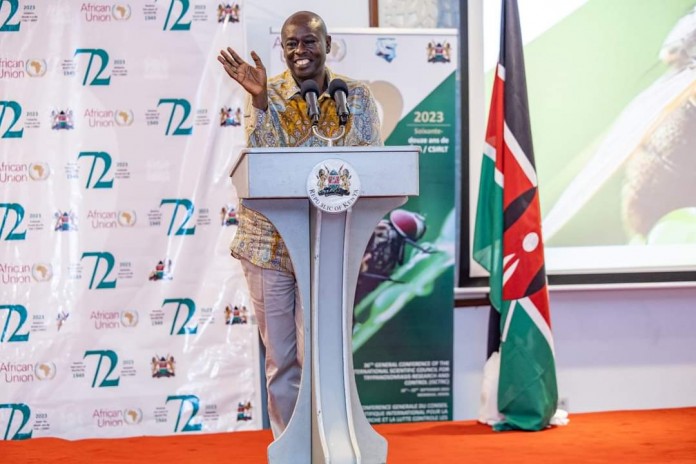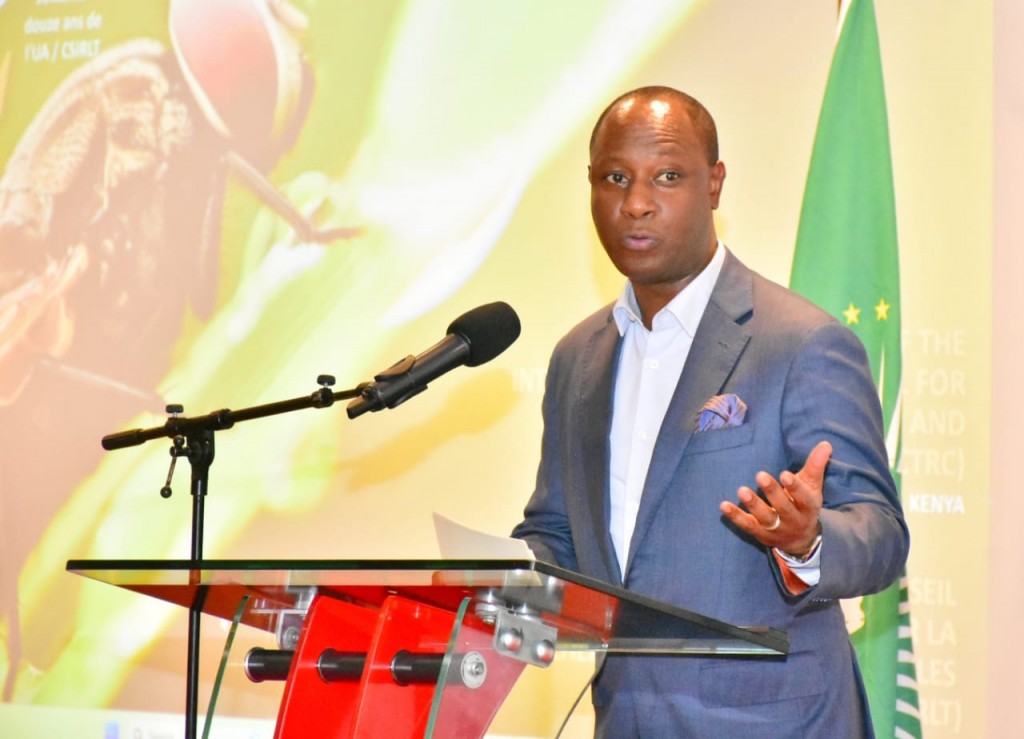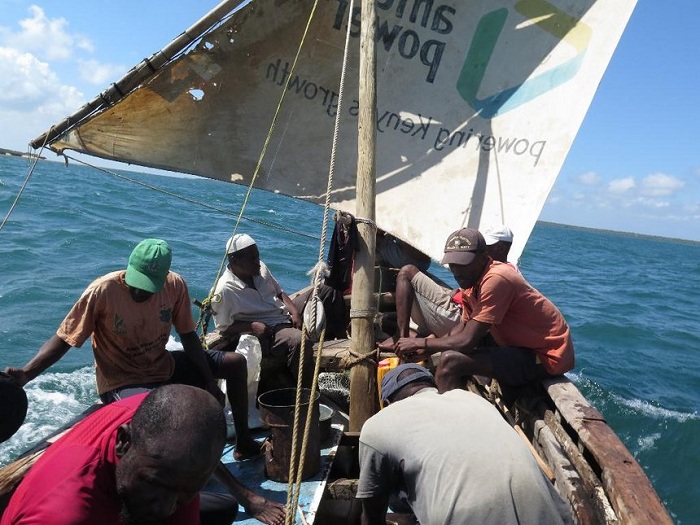
Deputy President Rigathi Gachagua has challenged African researchers to find solutions to deal with the continent’s challenges.
Speaking in Mombasa while officially opening the ’36th General Conference of the International Scientific Council for Trypanosomiasis Research and Control (ISCTRC), DP Gachagua said Africa had to stop looking for solutions to its problems outside Africa.
The DP lauded efforts by researchers in combating Trypanosomiasis in the continent saying it had been linked to economic losses of upto USD 4.5 billion (sh.661,725,000,000) annually in Africa.
“That is why this 36th Conference is important. With over 300 participants from across Africa and beyond, we have an opportunity to evaluate in detail, the strategies we have employed for decades,” said DP Gachagua.
“Further it is a moment to look at the contribution of research in solving contemporary challenges,” he added.
The deputy head of state reiterated that for Africa to meet the projected rise in meat demand by the year 2050, researchers must find a solution to the multiple Trypanosomiasis drug resistance reported in 21 countries including Kenya.
“This is a major threat to controlling the disease which is also a major threat to the economy of the continent. With millions of people also depending on livestock for food, the continent will be insecure unless urgent action is taken,” said DP Gachagua.
According to the DP, the meat market has been projected to increase by more than 100 percent.
“For instance, poultry meat demand will rise by 214 percent while pork will reach 161 percent mark by the year 2050. Globally, it is estimated that the meat demand will increase by 80 percent due to urbanisation,” added the DP

During the 36th Assembly of the African Union in Lome, Togo, African Heads of States and Governments resolved to eradicate tsetse and Trypanosomiasis from Africa in order to improve human health and productivity.
Delivering Agriculture Cabinet Secretary Mithika Linturi’s speech, Principal Secretary Department of Livestock Development Jonathan Mueke said the World Health Organisation (WHO) is in the process of declaring Human Africa Trypanosomiasis (HAT) also known as ‘sleeping sickness’ (which was last recorded in the country in 2009) eliminated as a public health problem in Kenya.
Mueke said the country established the Kenya Tsetse and Trypanosomiasis Eradication Council (KENTTEC) in 2012 to coordinate tsetse abd and Trypanosomiasis eradication from the country.
“The Kenyan government has prioritised food security, manufacturing and agroprocessing, Universal Health Care, and affordable housing as key drivers to Kenya’s economic development. Control of Trypanosomiasis will play a great role in this agenda,” said PS Mueke.
“Under food security, coordinated suppression of tsetse flies will make it possible for communities to engage in profitable livestock production. We will build capacity of communities to engage in sustainable land management activities in areas that have been affected by tsetse flies,” he added.

38 out of the 55 countries in Africa are affected by tsetse and Trypanosomiasis (T&T).
According to Dr. Huyam Ahmed Salih, the Director of AU-IBAR (African Union Interafrican Bureau for Animal Resources), sleeping sickness cases in 2022 was reported to be under 1,000 annually. She added that 50 million cattle are at risk, resulting in an annual death toll of three million.
“T&T presents a multifaceted challenge that surpasses the capacity of any individual nation or institution to address in isolation,” said Dr. Huyam.
She noted that the dedicated commitment of African Union Member states through their national programmes and the support and coordination of WHO has led to the reduction of the number of sleeping sickness cases dropping from 9,875 in 2009 to fewer than 1,000 in 2022.
“I call upon AU Member states to dedicate similar effort for the African Animal Trypanosomiasis (Nagana). Currently we are aware that control programmes use baited traps and targets as well as pour-on insecticides to reduce infection transmission,” said Dr. Huyam.
The five-day 36th General Conference of the International Scientific Council for Trypanosomiasis Research and Control began on Monday in Mombasa County.












